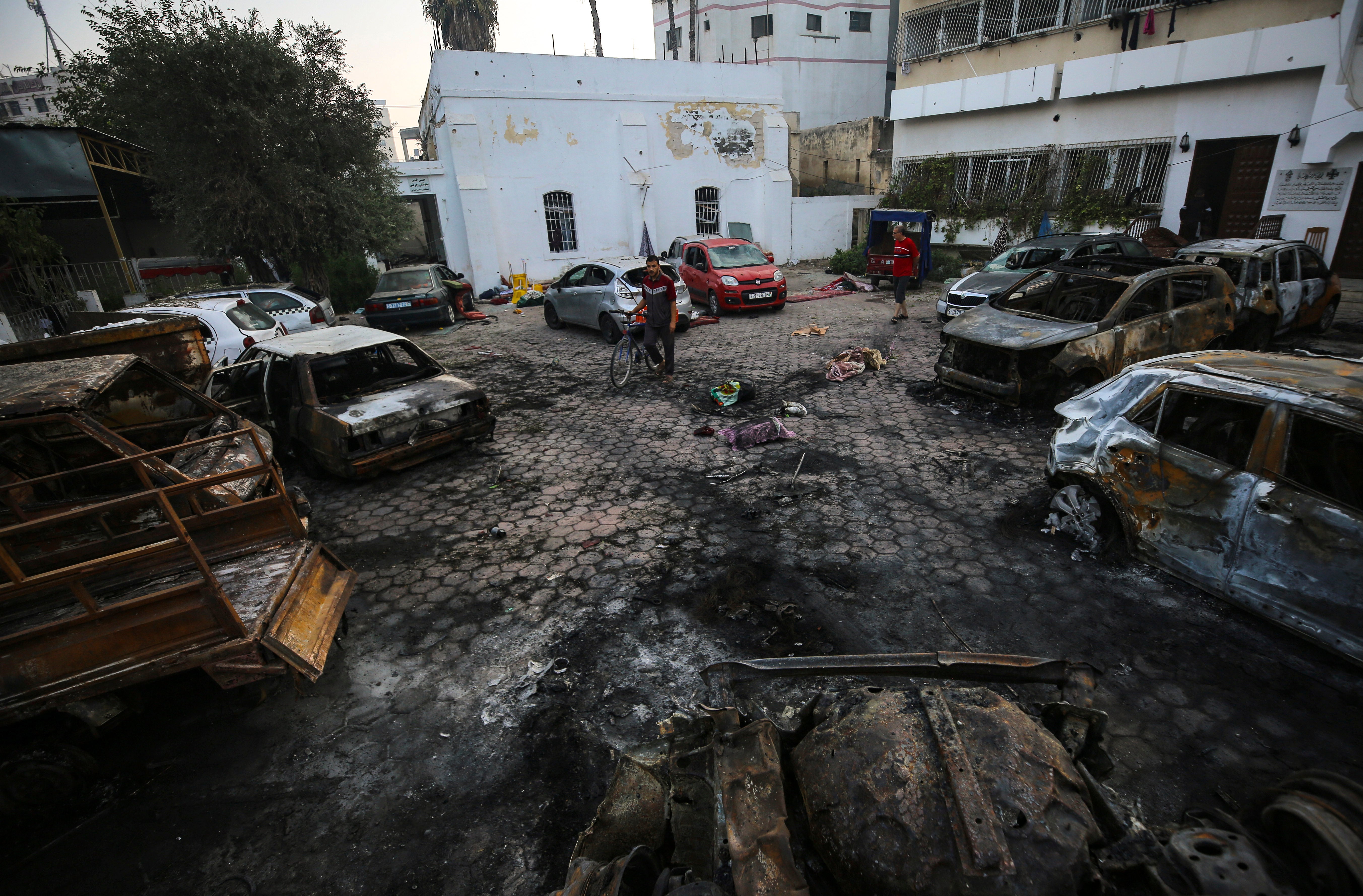French intelligence points to Palestinian rocket, not Israeli airstrike, for Gaza hospital blast
An assessment by French military intelligence indicates the most likely cause of the explosion at Gaza City’s al-Ahli hospital was a Palestinian rocket, according to a senior French military official

Your support helps us to tell the story
From reproductive rights to climate change to Big Tech, The Independent is on the ground when the story is developing. Whether it's investigating the financials of Elon Musk's pro-Trump PAC or producing our latest documentary, 'The A Word', which shines a light on the American women fighting for reproductive rights, we know how important it is to parse out the facts from the messaging.
At such a critical moment in US history, we need reporters on the ground. Your donation allows us to keep sending journalists to speak to both sides of the story.
The Independent is trusted by Americans across the entire political spectrum. And unlike many other quality news outlets, we choose not to lock Americans out of our reporting and analysis with paywalls. We believe quality journalism should be available to everyone, paid for by those who can afford it.
Your support makes all the difference.An assessment by French military intelligence indicates the most likely cause of the deadly explosion at Gaza City’s al-Ahli hospital was a Palestinian rocket that carried an explosive charge of about 5 kilograms (11 pounds) and possibly misfired, a senior French military official said Friday.
Several rockets in the arsenal of the Palestinian militant group Hamas carry explosive charges of about that weight, including an Iranian-made rocket and another that is Palestinian-made, the intelligence official said.
None of their intelligence pointed to an Israeli strike, the official said.
The official spoke on condition of anonymity, but was cleared to discuss the assessment by President Emmanuel Macron in what was described as an attempt to be transparent about the French intelligence findings. The assessment was based on classified information, satellite imagery, intelligence shared by other countries and open-source information, the official said.
The size of the blast crater in a courtyard of the hospital was assessed by French military intelligence to be about 1 meter (39 inches) long, 75 centimeters (29 1/2 inches) across and about 30 to 40 centimeters (12 to 16 inches) deep.
That is consistent with an explosive charge of about 5 kilograms, the official said. The official said the hole appeared to be slightly oriented on a south to north axis, suggesting a projectile that hit at an oblique angle on a south to north trajectory.
Officials in Hamas-ruled Gaza quickly blamed an Israeli airstrike for the explosion at the hospital Tuesday. Israel denied it was involved and released live video, audio and other evidence it said showed the blast was caused by a rocket misfired by Islamic Jihad, another Palestinian militant group. Islamic Jihad denied responsibility.
The death toll remains in dispute. Within just over an hour of the blast, the Hamas-run Health Ministry said 500 had died. It then revised that number slightly to 471 on Wednesday, without giving details of the dead. The Israeli military told reporters that number was inflated.
While also cautioning that “I have no certitude,” the French military intelligence official said: "We don’t see at all that a rocket that size could have produced 471 dead. It is not possible.”
A United States intelligency report estimated that somewhere between 100 and 300 Palestinians were likely killed.
Even in Gaza there were conflicting estimates of the dead. Al-Ahli Hospital officials said only that the toll was in the hundreds, without giving a firm number.
The general director of Gaza’s largest hospital, Shifa, Mohammed Abu Selmia, said he thought the toll was closer to 250, based on the casualties he saw streaming into the triage center. Two witnesses said they thought the toll was in the dozens, not the hundreds.
All officials in Gaza have said the blast left body parts strewn everywhere, complicating the task of counting the dead.
___
Associated Press writer Isabel DeBre contributed to this report.